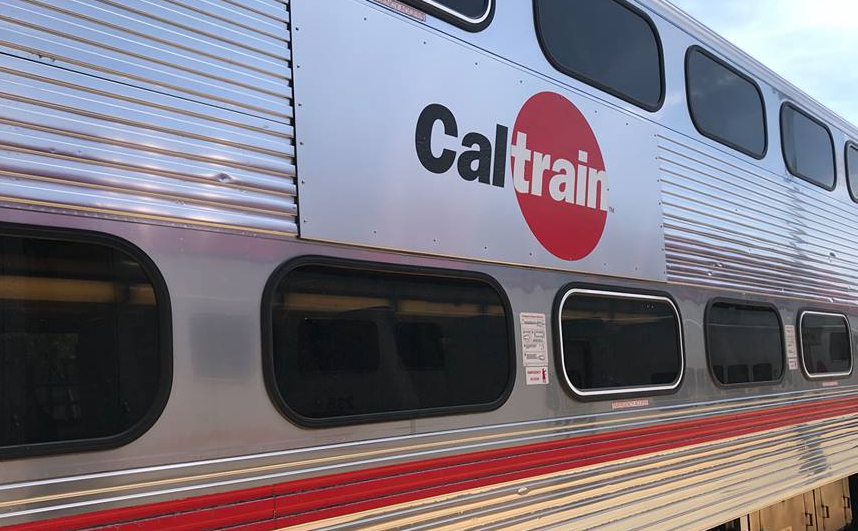Warning that Caltrain could shut down without a dedicated source of funding due to the COVID-19 pandemic, seven local lawmakers have released a joint statement urging the boards of supervisors in San Francisco and Santa Clara counties to allow voters to decide on an 1/8-cent sales tax measure in November.
Congressmembers Jackie Speier and Anna Eshoo, state Sen. Jerry Hill, Assemblymembers Kevin Mullin and Marc Berman, San Mateo County Supervisor Dave Pine, and Belmont Vice Mayor Charles Stone released the joint statement amid reluctance by officials in San Francisco and Santa Clara to support the measure, which would generate about $100 million for Caltrain.
Caltrain’s current reliance on ticket fares for revenue has made the system particularly vulnerable during the pandemic, according to the statement. The system serving about 65,000 riders per weekday saw a 95 percent drop in ridership due to the COVID-19 shelter-in-place orders. Caltrain is the only Bay Area public transit system without a dedicated source of funding.
“It has no source of its own money, the farebox only brings in 70 percent of its operating costs coupled with annual operating costs from the three member counties, and year to year the riders are at risk of the line shutting down,” the lawmakers said. “Now, at one minute to midnight, the train is really in danger of not showing up at the station.”
According to the San Francisco Chronicle, officials in San Francisco and Santa Clara are proposing that the tax revenue from a voter-approved sales tax go to the county in which they are collected rather than to the San Mateo County Transit District, which provides administrative support to Caltrain.
“The money would be deposited in an account controlled by the county’s transit agency, which would then have the authority to give all of it — or a fraction of it — to Caltrain,” the Chronicle reported.
That proposal, according to the lawmakers’ statement, violates legislation aimed at providing dedicated funding for Caltrain. In 2017, Senate Bill 797, authored by Sen. Hill, paved the way for Caltrain to put a ballot measure before voters.
“The statute requires that, if the ballot measure passes, the tax money go to Caltrain,” according to the lawmakers. “The proposals by San Francisco and Santa Clara County would violate the statute by making it possible that Caltrain might never see a dime.”
San Francisco Supervisor Shamann Walton, who represents his city on the Peninsula Corridor Joint Powers Board, which owns and operates Caltrain, said SF deserves a larger voice in how transit tax revenues are spent.
“It is unfortunate that San Mateo County leaders think they can continue to extort both counties and maintain 100% decision making, when it’s a fact that San Francisco and Santa Clara County would make up 80% of the 100 million dollars in revenue that Caltrain would yield from the tax,” Walton said in a statement on Facebook Sunday.






